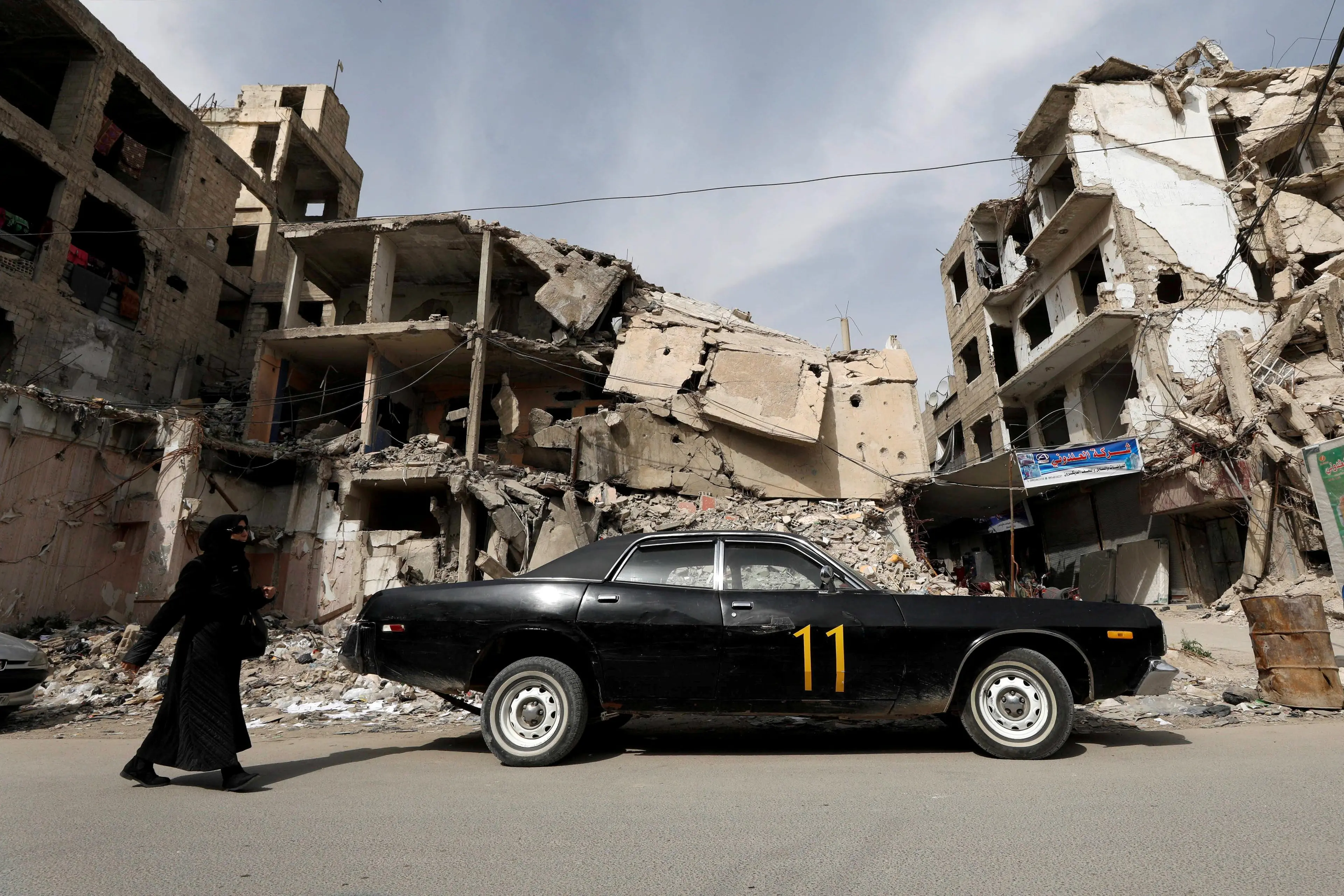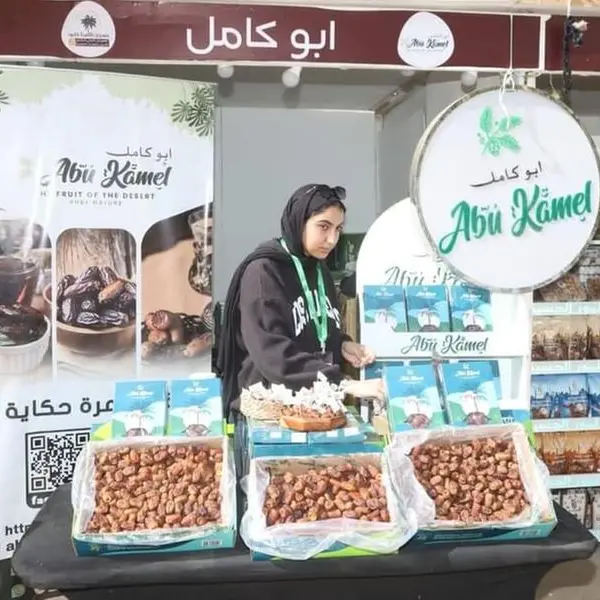PHOTO
After a decade of war in what used to be Syria, are 10 further years of conflict the best that can be expected?
Syria is a plurality of furiously competing polities: Rebel-held Idlib; Turkish-occupied northern areas; eastern regions where Kurdish forces, US troops and Iranian proxies jostle for supremacy; territories nominally under Assad’s control; a residual Daesh presence in some remote areas; not to forget Israel’s occupation of the Golan and its unceasing air strikes against Iranian positions.
The regime scarcely controls its own territories, with localized factions (Druze, Alawite, Arab) patrolling their own communities, while Russian and Iranian forces act with impunity in their zones of control. “We’re seeing the Balkanisation of Syria,” observed one UN official.
As in Iraq and Lebanon, Iran-aligned militias monopolize external and internal border zones, levying tolls and customs duties while overseeing the movement of weapons, missiles, narcotics and other smuggled goods. Civilians and traders in essential supplies pay extortionate fees to move from one canton to the next.
This fragmented reality won’t change without extensive renewed fighting, but no party has serious prospects of winning outright. Meanwhile, most of the civilized world shows little intention of renormalizing ties with Assad. The EU pledges not to lift sanctions or normalize relations until UN Security Council resolutions are implemented. The US’s Caesar Act likewise consolidates the regime’s richly deserved isolation.
The principle parties are seeking to render permanent the war’s brutal demographic shifts. Not for the first time, the Assad regime is pursuing legal measures to permanently dispossess entire populations whose loyalty is under question. A new law dictates that those who failed to perform military service must pay $8,000, or lose their property; for refugees who lost everything, it may as well be $8 million. Inside Syria, the currency’s latest collapse leaves civilians unable to afford the most basic foods as grocery prices soared by about 230 percent.
A similarly motivated 2018 law allowed the regime to confiscate property and demolish homes of perceived dissidents. The regime seized and auctioned off hundreds of farms from recaptured areas around Hama, leaving once prosperous farmers destitute. The cash-strapped Assad regime wins either way —extorting heavy taxes from people desperate not to lose their property, or profitably flogging off these assets to loyalists.
Turkey has performed comparable feats of demographic engineering in areas under its control. After much of the Kurdish population fled, Ankara has eased its own refugee burden as these regions have been repopulated with a majority of Sunni Arabs, using the Turkish lira and connected to the Turkish electricity grid, suggesting that Erdogan has no intention of relinquishing these territories. Such land grabs set the stage for future bouts of conflict, as dispossessed factions seek redress and revenge.
Activism by Turkey-sponsored Muslim Brotherhood evangelists among displaced populations also has worrying ideological implications, compounded by proselytism and recruitment by Al-Qaeda and Daesh-aligned elements. Among millions of young Syrians who never attended school, with scant future prospects, and enduring severe psychological trauma, radicalization is merely a matter of time.
In tiny Lebanon, the influx of 1.5 million Syrians likewise has a huge demographic impact. As with Lebanon’s vast Palestinian refugee population, the Syrian presence is looking increasingly permanent, with far-reaching implications for refugees who lack employment and citizenship rights, not to mention Lebanon’s stability and social coherence.
Prolonging the Syrian conflict only reaps more human misery. Up to a million are dead, and nearly 90 percent of children require humanitarian assistance. From a population of about 20 million, 5.5 million have fled and 6.7 million are internally displaced. Tens of thousands were tortured to death in regime prisons. Assad’s proposed solution to nationwide hunger was to outlaw TV cooking programmes! Even citizens who remain loyal to Assad live hand to mouth. The Syrian pound trades on the black market at about 1 percent of its pre-war value in dollars. Civil servants can earn a relatively comfortable $15 a month!
All conflicts acquire longevity through being internationalized. Syria has so many international parties on its soil, none of whom appear anxious to leave, that it could take years to deescalate the situation. Moscow is anxious to profit from a future peace dividend through lucrative reconstruction projects and expanding its regional influence. For Tehran, Syria is essentially a battlefield.
Southwestern Syria is Iran’s frontline in its never-ending confrontation with Israel. Central Syria is an essential route through which Iran rearms its proxies, including the transfer of medium-range missiles. Tehran expects Syria to be the battlefield where any confrontation would play out if Iran itself were threatened. Efforts at Shiite conversion and militia recruitment in Deir Ezzor are also inherently destabilizing. For Iran, therefore, Syria is a perpetual Dar Al-Harb, a “house of war” that can never be normalized as long as Iran’s proxies retain a quasi-permanent presence.
The Astana process (Russia-Turkey-Iran) was designed to exclude Western and Arab parties from the Syrian arena. For the new trilateral process (Russia-Turkey-Qatar), Moscow has excluded Tehran, and introduced an Arab party known for its hostility to the Assads. It is too early to know if this process has any mileage, but it at least appears more amenable to Western diplomatic engagement. Moscow and Ankara will obviously fight hard to protect their territorial and material interests in Syria, but could the counterpoint be a weakening of Assad and Tehran’s grip?
Ten further years of Syrian conflict are certainly not inevitable. However, ending this hugely complex war will require infinitely greater international focus and unity of purpose than at any time since 2011. A solution is possible, but only if Russia, America, the EU, Arab states and Turkey begin working seriously together to achieve this goal.
• Baria Alamuddin is an award-winning journalist and broadcaster in the Middle East and the UK. She is editor of the Media Services Syndicate and has interviewed numerous heads of state.
Copyright: Arab News © 2021 All rights reserved. Provided by SyndiGate Media Inc. (Syndigate.info).





















